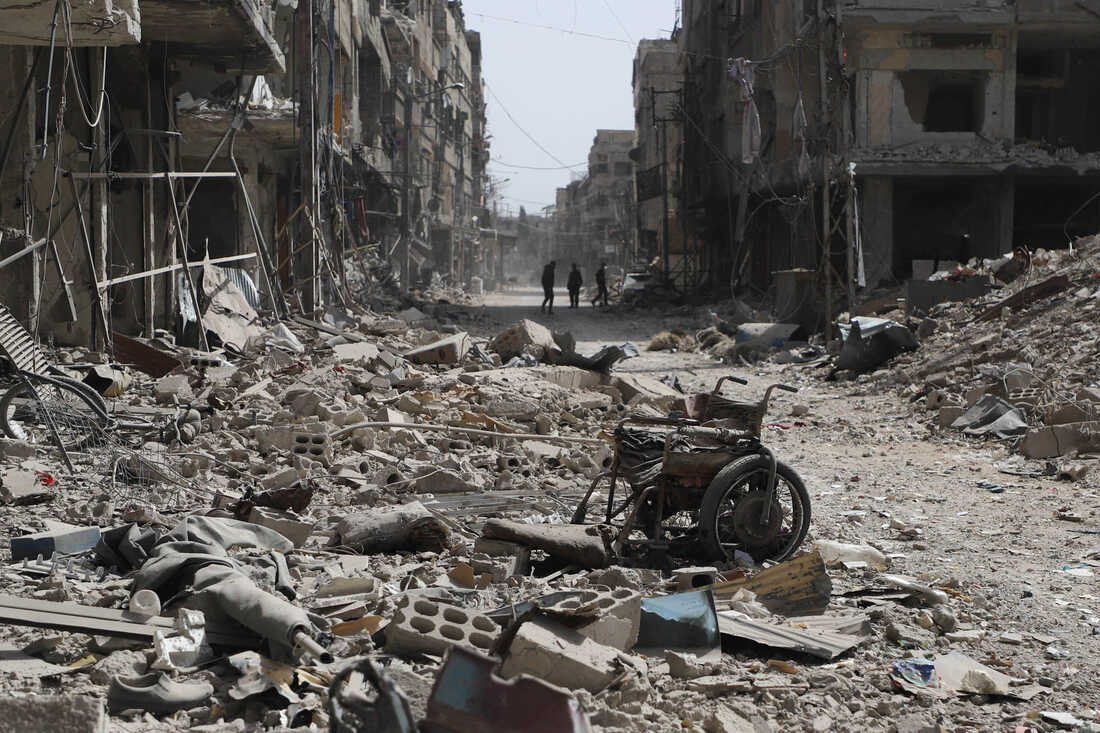
Destruction following regime air strikes on the town market in Zamalka, on the outskirts of the Syrian capital Damascus. March 22, 2018 Amer Almohibany/AFP via Getty Images hide caption

Destruction following regime air strikes on the town market in Zamalka, on the outskirts of the Syrian capital Damascus. March 22, 2018
Amer Almohibany/AFP via Getty Images10 years ago, when the Syrian regime sent tanks and warplanes to stop an uprising, it sparked a bloody civil war that is still ongoing.
Many anti-government protesters were brought to detention facilities where they were imprisoned and tortured. Now, there's hope that Syrian officials will be held accountable for their war crimes.
A trial is being held in Germany because the country adopted "universal jurisdiction," which allows them to prosecute crimes against humanity that happened anywhere, even if the perpetrators and plaintiffs are not citizens.
NPR's Deborah Amos has been following this story and spoke to witnesses who, despite being fearful of intimidation and retaliation, are speaking up in court.
Email us at
This episode was produced by Lee Hale. It was edited by Larry Kaplow, Brianna Scott and Fatma Tanis. Our executive producer is Cara Tallo.

 Live Radio
Live Radio